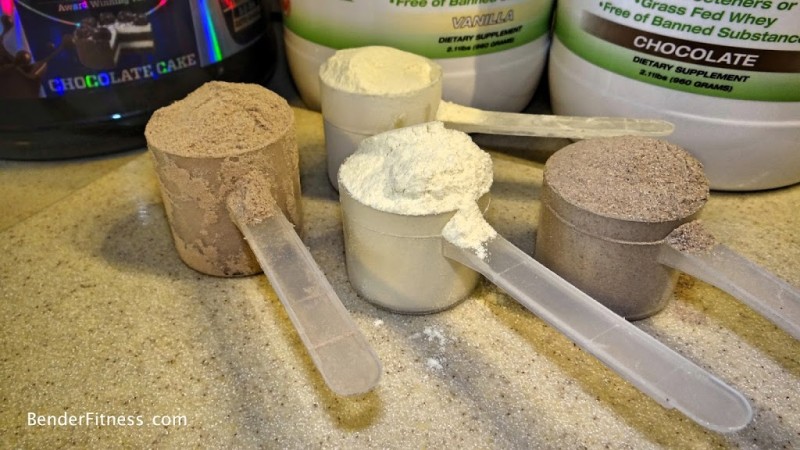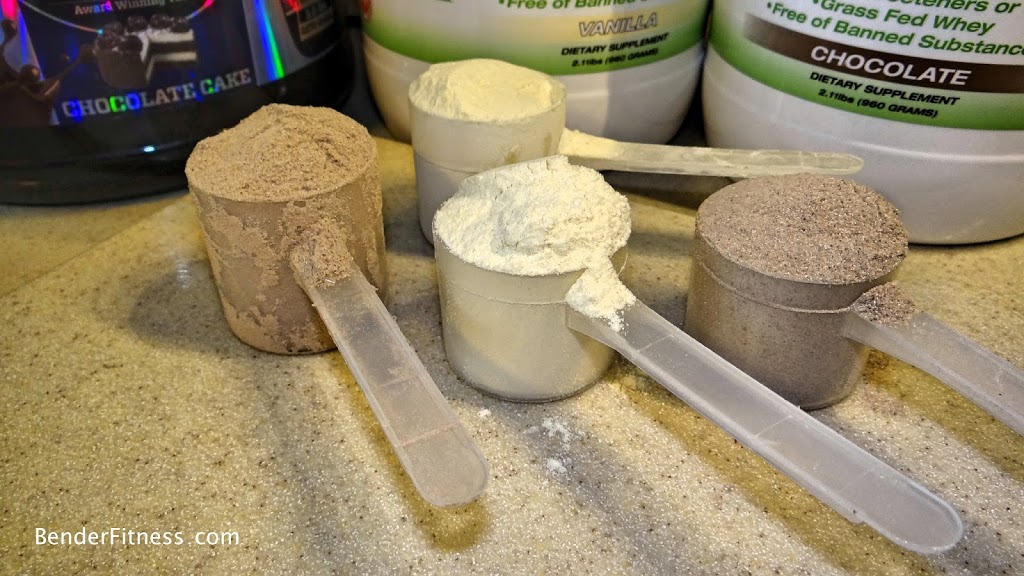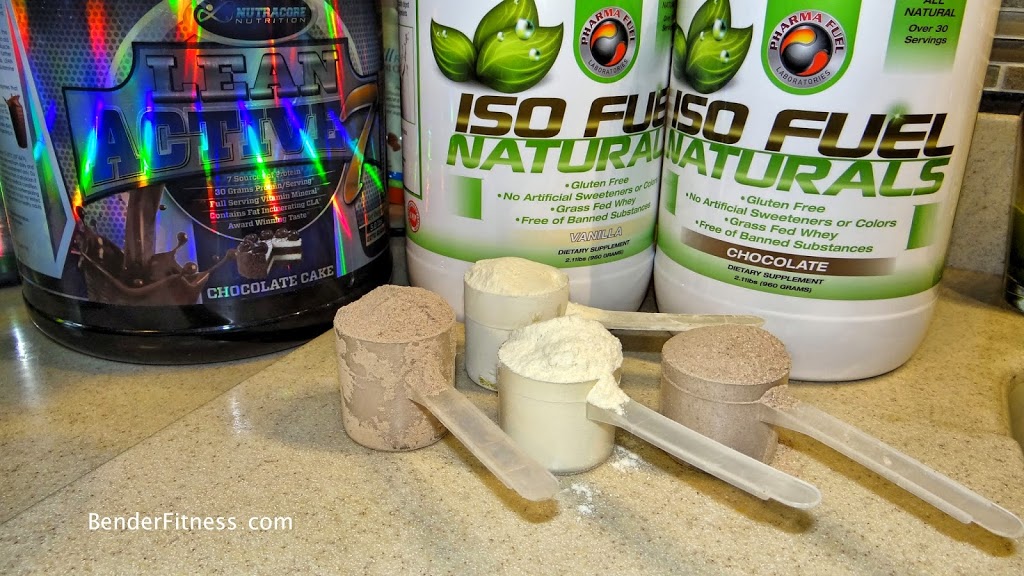Everything You Need to Know About Protein Supplementation
Written by: Jon Shoop
Hello Melissa Bender’s fans and followers!
My name is Jon Shoop, I am a sports nutritionist and own some nutrition stores in the United States. Melissa and I have been working together for a couple of years with vitamins and supplements for her personal health and fitness.
As many of you know, she really has enjoyed and benefitted from the supplements I’ve sent her and my recommendations on what to take and at what time of her daily schedule. I have been in the supplement industry for over three years with countless client success stories and thousands of people’s feedback on different supplements. With so many different opinions and thoughts on what to take and when, it can be extremely confusing and eventually can become frustrating.
Melissa has asked me to start writing about some different topics for her blog to hopefully benefit all of you out there who may not know all that much about the numerous supplements on the market. This is my first blog post for her and I am excited about it!
Sidenote: I am not a doctor, consult with your physician before starting any exercise or supplement regimen, especially if you have pre-existing conditions.
The first topic we wanted to cover is protein supplementation:
Protein is the main building block of muscle tissue.
A complete protein source has all 20 amino acids in it. Protein can come from animal sources such as beef, milk, chicken, eggs, most protein powders, and every other animal you can eat. It can also come from plant sources such as peas, brown rice, and quinoa. All animal sourced protein has all 20 amino acids while the various different plant proteins contain some, but not all 20 amino acids. If you are looking for a complete protein source go with an animal sourced protein such as whey, casein, egg, milk, or beef. Or you will need to find a plant based protein that has a blend of different plants so as to combine their different amino acid profiles, such as a protein that contains both pea and brown rice will give you all 20 amino acids when combining those two plant sources.
Different people have different protein needs and requirements.
Generally speaking, someone who is active and works out 3+ times a week typically needs a higher protein content throughout the day. Also, diet and goals play a big role in quantity of protein needed.
For example, someone who is trying to lose weight would be sufficient at getting 0.8 grams of protein per pound of body weight. Let me illustrate further: a 200 lb man is trying to lose weight. He would be fine at getting 0.8 X 200 = 160g. So a 200lb man getting 160g of protein per day is a fine amount.
For someone trying to gain weight, they should shoot for 1-1.2g of protein per pound of body weight. For example a 200 pound man would be good with: 1-1.2 X 200 = 200-240g of protein needed. You can use those numbers to find out your protein requirements.
Another good rule of thumb I like to use is 1 gram of protein per pound of DESIRED body weight. For example, a 200 lb man wants to lose 50 lbs and get down to 150lbs, so he starts by making sure he gets 150g of protein daily.
I also have a few recommendations on when and what types of proteins to take.
Proteins breakdown at different rates in our body’s digestive system. This is due to certain proteins being comprised of shorter or longer chains of amino molecules. A fast digesting protein for example is whey protein. A longer and slower time releasing protein source is casein.
Typically I am faced with two different scenarios of people who supplement protein:
The first of which is the person who just takes a protein shake after workouts and at no other time of the day. For this person, a whey protein isolate is a very good choice. The reason why this is a good choice for this individual who just has a shake after workouts is because after workouts we have a critical time frame to help our body’s recover and repair from what we just put it through for maximum uptake. To accentuate this time frame of recovery, a whey isolate protein is the best option. Whey isolate protein is very fast digesting and absorbs quickly into the bloodstream so this is why specifically whey isolate protein is best for this type of person.
The second scenario is of the person who has a protein shake for snack or meal replacement and/or after workouts. For this scenario I would recommend a blended (multi-sourced) protein. The first and main ingredient of the compound being a whey isolate protein, blended with some egg and casein protein in it as well. I call these blended proteins, “dual use” types because they are going to be good after workouts because of whey isolate as it’s main ingredient. The second aspect of this type of protein is its versatile function throughout the day when used as a meal replacement or snack.
You as the consumer would want something more whole-food like that takes longer to breakdown and digest, keeping you more full for longer, as a normal meal would. Milk, egg, casein, and some plant proteins are all going to be slower digesting proteins than whey isolate. The slower the digesting the longer it will keep you full. So when a blended protein has whey isolate, egg, milk, and/or casein proteins in it, it makes a good option for someone who just wants one protein that is a good fit for all their uses.
I hope this was informative and helped clear up any questions you amazing people have in regards to your protein supplementation! The next topic will be up to you guys so ask away and I will pick one or more questions or topics to discuss in each article.
Thank you for your time, if you have any more questions feel free to reach out! Stay tuned for more articles.
Jon Shoop
If you liked this article you might also enjoy:
You can read more about Jon and his background in Nutrition, Health, Fitness and Competition Training at:
If you would like to place an order or get more information please message him at: www.facebook.com/tnmansfield
If you have questions for Jon post them in the comments below, or on my Facebook page: www.facebook.com/MelissaBenderFitness





Thank you.
This is awesomeinformation. Thank you.
What sources do you recommend for obtaining, as an example, 120g of protein? I get 20g-ish from my protein shake after workouts, but feel really sluggish and not good eating the amount of chicken in a day to get me the rest of the way to the goal of 120g. I do eat a plethora of vegetables but am trying to find that happy balance of eating a variety of foods, getting the right amount of protein, and not feeling like a have to eat a full course meal every 3hrs to do it.
Any suggestions? Should I incorporate a variety of protein shakes in my day to hit goal protein consumption?
Hi Jon
Thank you! Great information. I look forward to reading more of your posts. Could you please elaborate on the “critical time frame” we have to refuel our body after a workout? I have to wonder if I’m hitting that time frame in the mornings.
Thanks again
Kalli
What protein source and/or supplement would you recommend to a person who has several food allergies (plenty of them to different proteins), for example allergic to eggs, rice, soy, buckwheat, maize, peas (among others) and in addition celiac disease, lactose intolerance and vegetarian, but who would like to gain lean muscle and like to be active and have 5-7 workouts per week. Thank you very much in advance!
Anonymous,
This is my favorite protein, dub protein 2.0. It is a collagen based protein (not dairy, not vegetable). Its super clean, super effective and convenient (no shaker needed). I am a distributor, so clearly some bias, but it really is awesome. Let me know if you have any questions.
https://www.facebook.com/TeamDubSLC/photos/a.731328103555494.1073741830.730567480298223/731366223551682/?type=1&theater
Melisa, I hope it OK I posted this? If not please let me know.